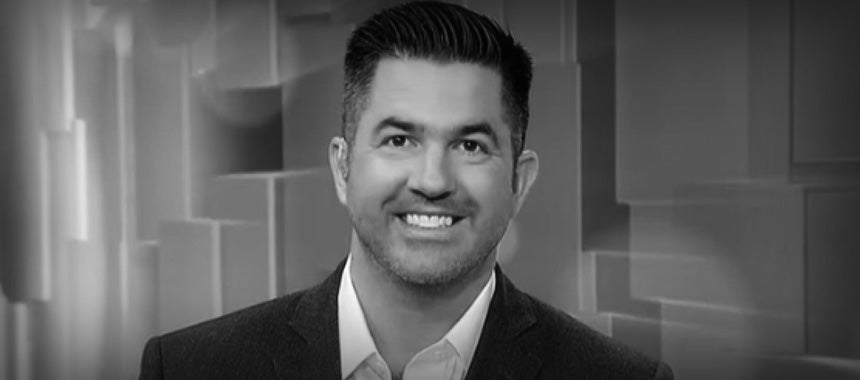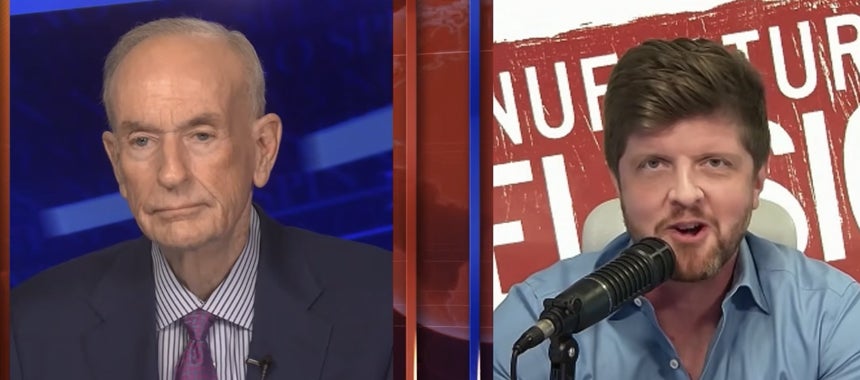Sean Parnell on Afghanistan and Cuba
16 Jul 2021
BUCK: As you know, things in Afghanistan are deteriorating very rapidly even more so than some of the pessimistic assessments were saying just six or 12 months back. Almost half the country now, according to Long War Journal, which follows this very closely, in effectively Taliban hands at this point.
 We’ve got that issue and also the continuing violence in the streets in Cuba and what should the U.S. do there. I want to bring in our friend Sean Parnell right now. Sean Parnell is a former Army Ranger. He was a combat veteran in Afghanistan, author of a great book, “Outlaw Platoon” on his time there and he is also a candidate for the United States Senate in Pennsylvania. Sean, my friend, great to have you with me and Clay here.
We’ve got that issue and also the continuing violence in the streets in Cuba and what should the U.S. do there. I want to bring in our friend Sean Parnell right now. Sean Parnell is a former Army Ranger. He was a combat veteran in Afghanistan, author of a great book, “Outlaw Platoon” on his time there and he is also a candidate for the United States Senate in Pennsylvania. Sean, my friend, great to have you with me and Clay here.
SEAN: Hey, Clay, hey, Buck, thanks for having me. I heard the music, man, the lead in. I’m in the big leagues now, man. This is awesome. Thanks for having me.
BUCK: Yeah, I know you’re a longtime Rush listener, man; so we appreciate you coming here to join. Did you ever think you’d be calling in to that music on your own?
SEAN: No. No. Absolutely not. But it’s cool to be here with you both and I’m excited to be on the show.
BUCK: Tell us Afghanistan, Sean. You fought. You were there. You had brothers in arms beside you. You lost guys in your platoon fighting against the Taliban and fighting against the Haqqani network and the various factions there. What do you make of what we’re seeing right now?
SEAN: Yeah, well, sadly, it’s predictable. I’ll tell you this, and I’ll tell your listeners this. I think the war was won in Afghanistan back in 2006 and 2007 when we were there. Our mission was very, very simple. Find Osama Bin Laden and forgive me for sounding crass, but kill the enemy. And in doing so, you thereby secure the Afghanistan people and allow the Afghanistan government the time and the space to the e govern their people.
The strategy that we implemented back then was a counterterrorist strategy like mostly focused on what we call direct kinetic strikes, going after the enemy, hunting them down, and keeping them in the mountainous border region between Afghanistan and Pakistan.
Now, somewhere along the way, after a 485-day combat deployment, we shifted strategies from counterterror to counterinsurgency. This is all around the time of the Iraq surge — you remember that I’m sure — where folks on Capitol Hill were debating weapons of mass destruction, are they in Iraq or are they not. Well, General Petraeus, he implemented this counterinsurgency strategy during the surge in the Iraq war to great effect there, and I think he succeeded in Iraq, but then what our senior military leadership at the Pentagon did along with I think General Petraeus with the best of intentions tried to implement that strategy in Afghanistan.
And the problem is that counterinsurgency is based on nation building and a host nation coming into a nation that already exists and help them establish a sort of Jeffersonian democracy. Well, the problem with that is that — I’m sure as both of you know — is that Afghanistan can barely be considered a nation, let alone one that can effectively host another one. In fact, Afghanistan is mostly tribal.
CLAY: What do we look like in Afghanistan a year or two years from now? Will it be as if the United States had never gone into the country in the first place?
SEAN: Three months from now it will look like that. And, yeah. The Taliban has all the momentum right now. I mean, if I could wave a magic wand, right? If I were somehow advising President Biden on how to handle the Afghan conundrum right now is you’ve gotta keep a small force of kinetic operators there. I mean, if it’s me, the whole reason we went into Afghanistan was to keep that country from becoming a petri dish for terrorists and find obstacle.
Well, we found Osama Bin Laden, but the last thing that we want is that country to go back into — fall into Taliban hands and allow terrorists freedom to maneuver there in that mountainous border region where they can conduct and plan attacks on America or anywhere else.
CLAY: You think that’s effectively what we’re a going to leave behind. After 20 the years and nearly a trillion dollars, we got Osama Bin Laden, but in theory, Afghanistan is going to be cable of creating new generations of Osama Bin Ladens and we basically haven’t accomplished much of anything?
SEAN: Yeah, that’s exactly what I think and I think in three months tragically we’re gonna go back to square one. And look. I understand the nuances of the strategic decision to withdraw from Afghanistan. I understand that most people — and most Republicans’ hesitancy with full-scale withdrawal revolves around what are we gonna do about the people that are left behind? We’re talking little girls who went to school to learn to read based on the American promise that we were gonna protect them. Little boys or kids or even adults who came to work on our forward operating bases, hey, trusting an American promise that if you work for us and help fight for your own freedom we’ll be there for you. I get that.
Every one of those people that worked on American bases or little girls that went to school will have a target on their back. No question about it. But I also think leaders in government, military leaders or senators or congressmen, men and women, they need to also understand that we have an obligation to families in western Pennsylvania or Pennsylvania who send their kids over to the fight, and that obligation is what’s the mission, what’s the clear-cut end state.
And I think probably for the last decade, if you went to a different forward operating base all along the Afghan-Pakistan border, asking a young American private what the mission was in Afghanistan, they’d all give you a different answer. And that’s problematic. And when the mission isn’t clear, it causes hesitancy on the backfield, and that hesitancy can cost lives. And so I understand the humanitarian component. I would say it is time to leave, but we don’t have to make sure we do it in the right way.

BUCK: Sean, you and your brothers in Outlaw Platoon fought and bled, and you lost some of your guys in this war over there. Is pulling out now the right move?
SEAN: I think it’s time to go. I think we’ve lost the initiative. But I would also say, and I think President Trump’s plan back, you know, when he was president was to leave a small residual force to go after the worst of the worst. I mean, the whole intent of that would be just to have somebody there to keep the enemy guessing, right? You’re not talking thousands of troops but just like Delta, SEALs, Rangers, Special Operations Forces that if you find a high value target on the border, you go get ’em, capture, kill ’em, you just keep the enemy moving. Right? That way, they’re not able to settle down on a attack and export Terry around the world. But, yes, I think it’s time to go. We just have to make sure we’re doing it the right way.
BUCK: We’re speaking to Sean Parnell, who is a combat veteran of Afghanistan. He was an Army Ranger and “Outlaw Platoon” is the book he wrote — memoir he wrote about his time over there. Sean, let’s pivot to Cuba for a moment here. What do you think the U.S. role should be if anything more substantial than what we’ve seen from the Biden administration, which I think we could all agree is flimsy?
SEAN: Well, I mean, the Biden administration can’t even bring themselves to condemn what is a hostile communist dictatorship in Cuba. You know, I think the highest aspiration of people all around the world is freedom, true freedom, the ability to chart their own path in this world. And I think the Cuban people have had it. I think they want that. And I think to the extent that we can support that freedom — I mean, there’s — Cuba is like, what, a hundred miles from Florida. They’re essentially our southern border. Like, we should support that.
What blows my mind is that when Jen Psaki is asked direct questions to condemn and kick down the communist leadership, she doesn’t do it. If they don’t have the moral clarity to be able to point to our enemies and say, “You are an enemy, right, of not just the United States, but of freedom, know, free people everywhere,” if our leaders don’t have the moral clarity, you know, I think the world will suffer and I think our country is weaker for it.
CLAY: Sean, e’ve talked some about United States intervention in Cuba and what the right move is and certainly providing the internet and nonphysical activity. The mayor of —
SEAN: Right.
CLAY: — Miami said that he wanted to do air strikes. You were in Special Forces. How many Special Forces soldiers do you think it would take to go into Cuba? Like just hypothetically given the skill set that you guys have, we saw what just happened in Haiti. How many people would it take from United States Special Forces to overthrow the Cuban government?
SEAN: Well, I can answer that question, but I was a conventional infantry guy, I was a Ranger qualified guy. Worked with Special Forces all the time. And I’ll tell you what. Those dudes are superheroes. You could probably go into Cuba — I mean, Special Forces, Green Berets, their mission, they specialize on foreign internal defense, Clay. And so you could probably send one or two Special Forces teams into Cuba, and they take down that government fairly quickly.
CLAY: How many guys would that be? You say superheroes. Those guys are bad asses, don’t doubt about it. How many guys would be involved in that?

SEAN: I mean the force structure of Special Forces has changed over the years. When you say a Special Forces team, you’re talking two teams of eight, you know, that could infiltrator within the country and work with indigenous populations to train them, right? And the hope is that the indigenous population of that country would then go after —
CLAY: Rise up.
SEAN: — the government, right?
CLAY: Yes.
SEAN: You could probably do that — I don’t want to say easily. Easily is the wrong word, but we have that capability.
BUCK: We’ll have to say what is happening from the Biden administration on this one. I remember when the Obama administration won’t even send conventional munitions like anti-tank weapons to our Ukrainian allies against Russian backed separatists. So I wouldn’t hold anyone’s breath on Biden deciding to get deep into this one. But, Sean, always great to have you with, my friend. Thanks for joining us, and we’ll talk to you again soon, all right?
SEAN: Yeah. Thanks, Buck. Thanks, Clay. This was awesome being here.
Recent Stories
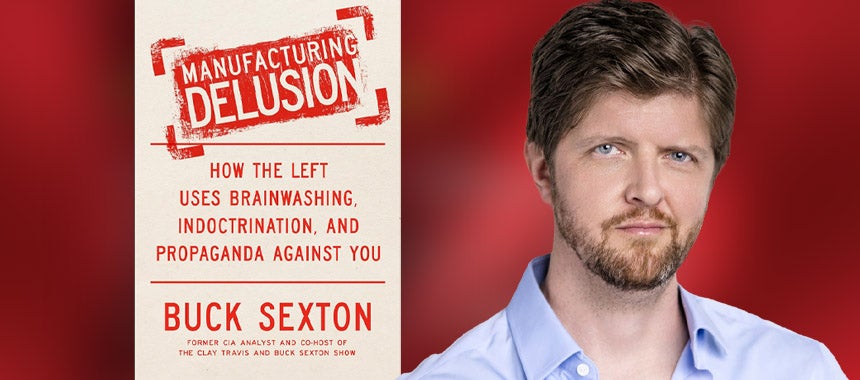
Manufacturing Delusion Is On Sale Now!
Buck's book opens at #4 on the New York Times bestseller list. Get your copy today!
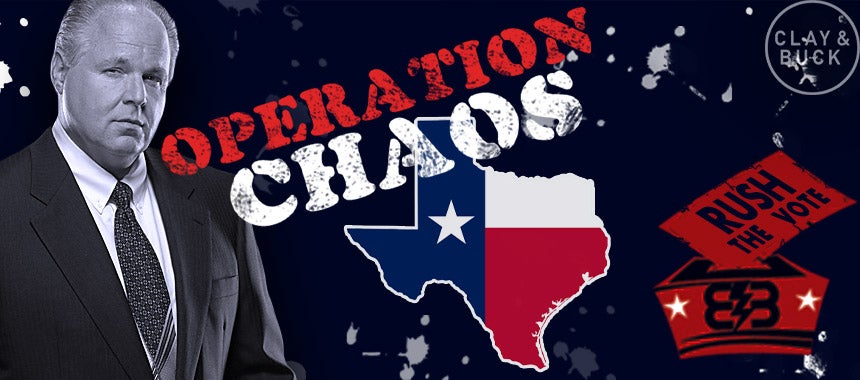
Operation Chaos Lives in Texas! Republicans Voting Crockett?
Rush's Operation Chaos reborn in the Lone Star state!
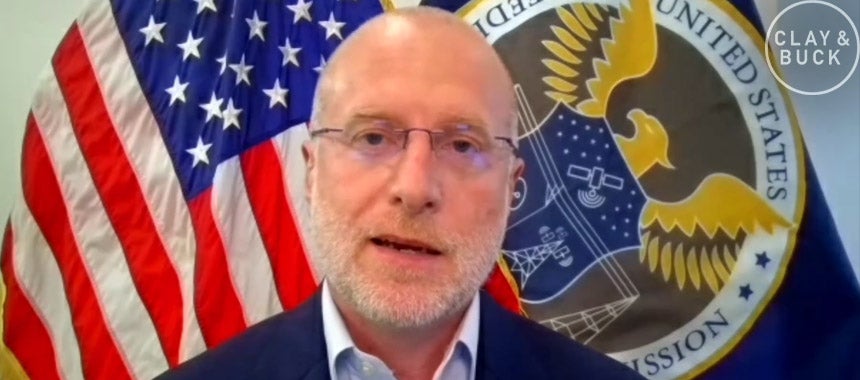
Brendan Carr Explains the FCC Public Notice on Sports Broadcasting
The FCC commissioner wants to make sports easier to watch.
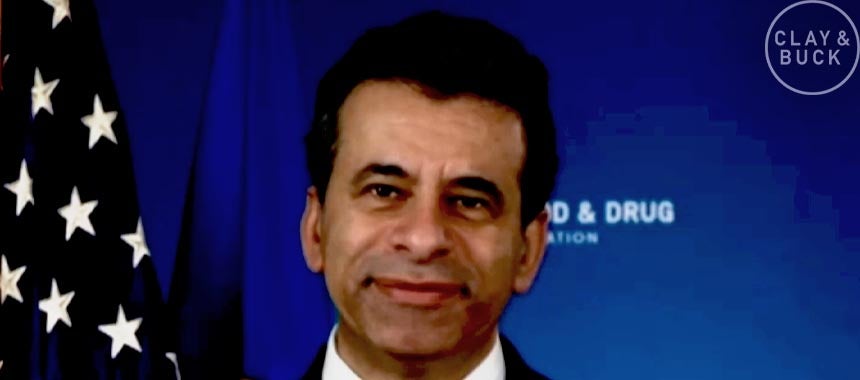
The Great Dr. Marty Makary on All the Ways the FDA is Making America Healthier
FDA Commissioner, Dr. Marty Makary, joins Clay and Buck with a far-reaching, exciting MAHA update.


